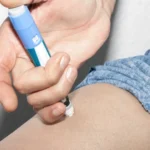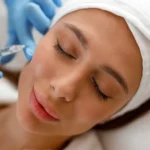THE WHAT? Standards Australia has released an updated sunscreen standard, AS/NZS 2604:2021, setting new benchmarks for sunscreen testing and labeling to ensure products sold in Australia and New Zealand meet international quality guidelines. The updated standard, which was published in 2021, has received broad support from industry stakeholders and the public, facilitated by comprehensive consultations led by the Therapeutic Goods Administration (TGA).
THE DETAILS The TGA has announced plans to integrate the 2021 Sunscreen Standard into the Therapeutic Goods Regulations 1990 and the Therapeutic Goods (Excluded Goods) Determination 2018. This adoption process is set to standardize sunscreen formulations and packaging, reflecting a commitment to consumer safety and product efficacy. Starting 1 July 2024, all new sunscreen products registered in the Australian Register of Therapeutic Goods (ARTG) must comply with the updated standards. Additionally, a transition framework has been established, giving existing products time to meet the new requirements: aerosols and spray pumps have a one-year period, while all other sunscreen formats have up to five years
THE WHY? This regulatory update aims to harmonize Australian and New Zealand sunscreen standards with global practices, enhancing the protection offered to consumers under the harsh UV conditions typical in both countries. By aligning with international standards, the TGA ensures that sunscreens not only prevent sunburn but also more effectively contribute to skin cancer prevention. The transition periods provide manufacturers sufficient time to adapt their products without disrupting market availability.
Clinical aesthetics products refer to a category of products used in the field of medical aesthetics or cosmetic dermatology. These products are typically designed and formulated to be used under the supervision of healthcare professionals, such as dermatologists, plastic surgeons, or trained aestheticians. They are distinct from over-the-counter cosmetics in that they often contain active ingredients or formulations that require expertise in their application or administration.
Examples of clinical aesthetics products include:
-
Dermal Fillers: Injectable substances used to add volume, smooth wrinkles, and enhance facial contours. Examples include hyaluronic acid fillers like Juvederm and Restylane.
-
Botulinum Toxin (Botox): Injectables that temporarily paralyze facial muscles to reduce the appearance of wrinkles caused by repetitive movements, such as frown lines and crow's feet.
-
Chemical Peels: Solutions applied to the skin to exfoliate and improve its texture. They can treat acne, pigmentation issues, and signs of aging.
-
Laser and Light Therapies: Devices that emit focused light or laser energy to treat various skin conditions, including acne, scars, and signs of aging.
-
Prescription Skincare Products: Formulations containing active ingredients like retinoids (vitamin A derivatives), hydroquinone, or prescription-strength antioxidants to address specific skin concerns under medical supervision.






